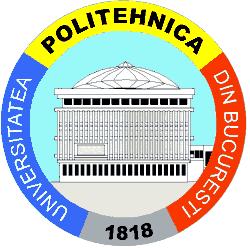Keynote Speakers
Dr. Liqun Chen
Hewlett-Packard Laboratories, UK
Solving Privacy Problems with Anonymous Digital Signatures
Today, digital signatures are widely used in computer science and information security to provide services such as entity authentication, data origin authentication, non-repudiation and data integrity. Anonymous digital signatures are a special type of digital signature. In an anonymous digital signature scheme, an unauthorised entity, including a verifier, cannot discover the signer's identifier from the digital signature. However, such a scheme still only allows a legitimate signer to generate a valid signature. In this talk, we will introduce various categories of anonymous digital signatures, such as group signatures, ring signatures, direct anonymous attestation, concurrent signatures, and ring group signatures. We will discuss privacy problems in the real world, particularly in the areas of trusted computing and cloud computing, and we will investigate which digital signature can be applied to solve a specific problem. Finally, we will look at a few international standards relating to anonymous digital signatures.
Dr. Muhammad Younas
Oxford Brookes University, Oxford, UK
Context-aware Transaction Management in Pervasive and Mobile Computing
Rapid advances in pervasive and mobile computing technologies provide new, open and flexible environment in which devices and services are context-aware, adaptive and responsive to users’ needs and execution environment. It provides an infrastructure for anywhere/anytime service provisioning in different domains, for example, businesses, engineering, education, and entertainment. This style of service provisioning enables users to freely move between geographical areas and to continuously access information and conduct online transactions. However, majority of information and services currently available to users are through read only queries such as news bulletin, weather information, and product prices. But in order to fully realize the vision of the pervasive and mobile computing it is imperative to extend service provisioning beyond read only capacity and to allow for update operations (transactions) on data and services. Consider for example a scenario of car insurance services which can be made available to users (drivers and insurance staff) through mobile devices. In case of an accident or a car breakdown, drivers can use their mobile phones to make claims and request for recovery services. In order to process such requests insurance company staff have to complete a number of tasks such as finding information about the car and its driver, police reports, accident information, location of accident or breakdown, etc. In certain cases, staff are required to physically visit the location and examine the damaged car in order to provide cost estimate for insurance claims. This talk presents a context-aware transaction model that dynamically adapts to the users' needs and execution environments in pervasive and mobile computing - e.g., in the above scenario, transactions can be used to correctly and consistently complete the different tasks involved in the insurance claim. This talk will first introduce the new model for the management of context-aware transactions. It will then present the protocol for the execution of context-aware transactions. It will also discuss a mobility management scheme for context-aware transactions and will identify directions for future research.

Prof. Janusz Kacprzyk
Polish Academy of Sciences, Warsaw, POLAND
Professor, Systems Research Institute
Head, Intelligent Systems Laboratory
President, International Fuzzy Systems Association (IFSA)
President, Polish Society for Operational and Systems Research (PTBOiS)
Editor-in-chief, Springer books series
http://www.ibspan.waw.pl/~kacprzyk/

